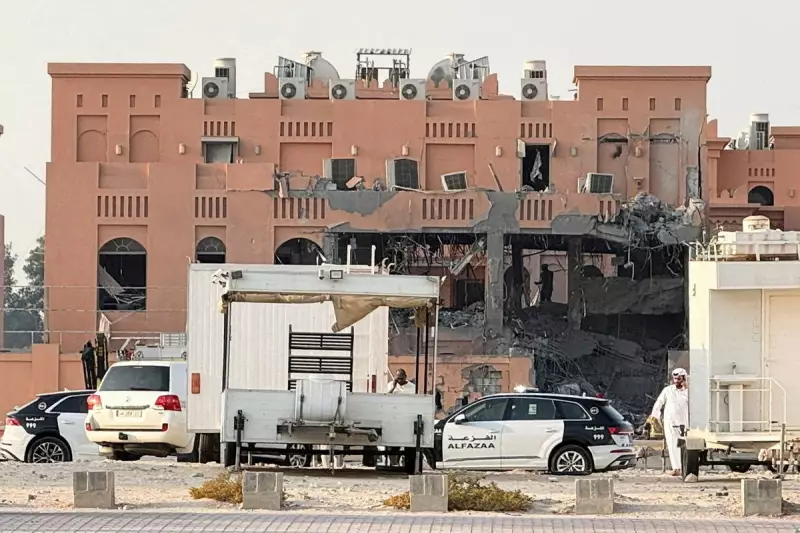
The delicate ceasefire negotiations between Israel and Hamas are facing a severe crisis following a shocking Israeli airstrike. The target? The very office in Gaza where Qatari officials were mediating the tense talks.
Qatar, a key intermediary in the conflict, has issued a furious condemnation, labelling the strike as 'barbaric'. This aggressive move is seen as a direct attack on its diplomatic efforts and threatens to completely unravel the fragile peace process.
A Direct Hit on Diplomacy
The airstrike has sent shockwaves through the international community. Targeting the premises of the Gaza committee responsible for managing Qatari funds, the attack is perceived not just as a military action, but as a profound insult to Qatar's role as a peace broker.
This escalation raises critical questions about Israel's strategy and its commitment to the ongoing negotiations aimed at securing the release of hostages held by Hamas.
Netanyahu's Stance and Mounting Pressure
Despite the international outcry, Israeli Prime Minister Benjamin Netanyahu remains steadfast. He has publicly defended the military's actions, vowing to continue with 'full force' until what he defines as 'complete victory' is achieved.
This position puts him at odds with key allies and increases pressure on his government. With families of hostages desperately pleading for a deal to secure their loved ones' release, and a growing chorus of international criticism, Israel's campaign is becoming increasingly isolated.
The Human Cost and a Precarious Future
The human toll of the conflict continues to mount at a staggering rate. Palestinian health officials report casualties exceeding 25,000, painting a grim picture of the devastation in Gaza.
This recent strike on a diplomatic channel doesn't just jeopardise a potential ceasefire; it dangerously narrows the paths towards de-escalation and humanitarian relief, leaving the future of the region hanging in the balance.





